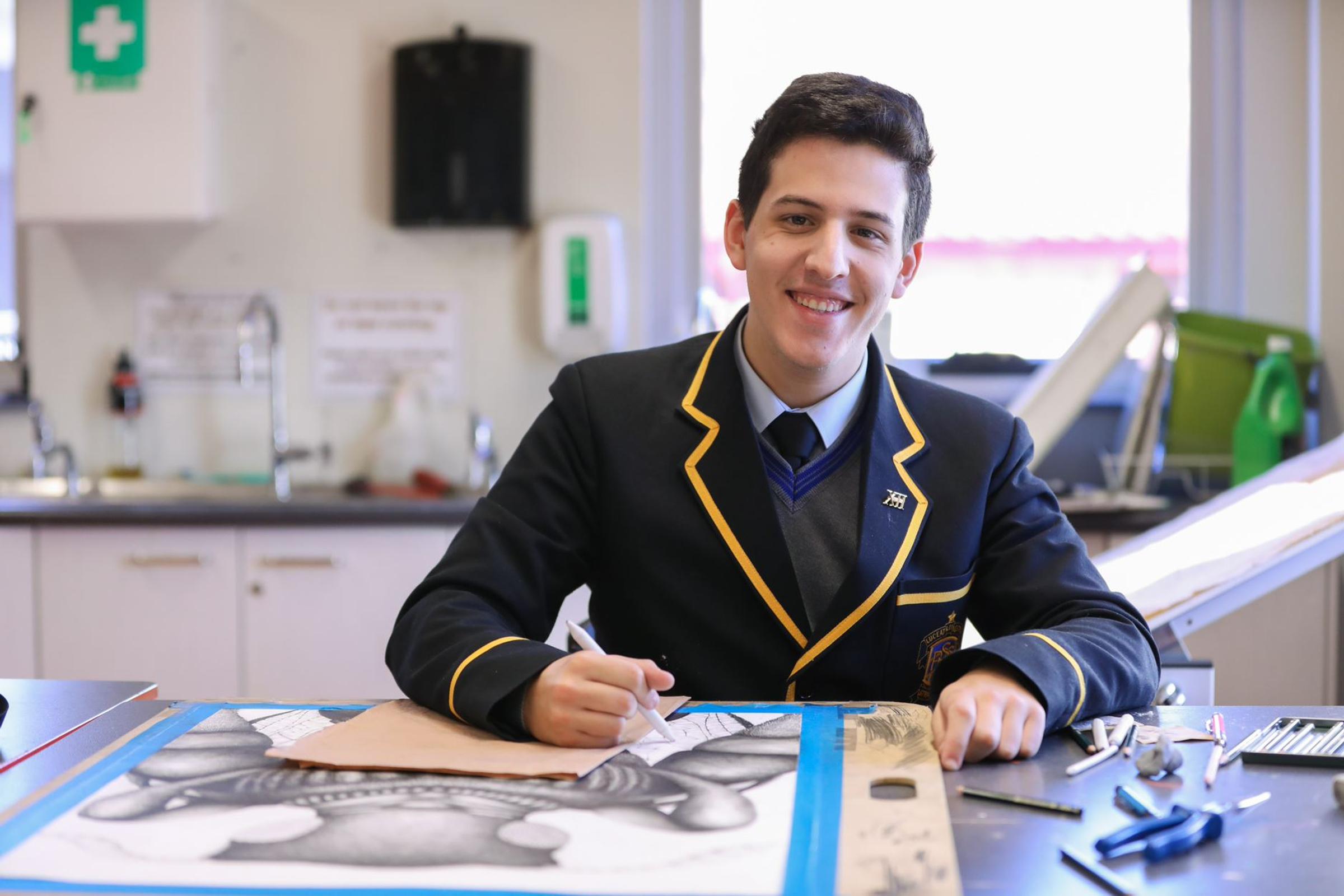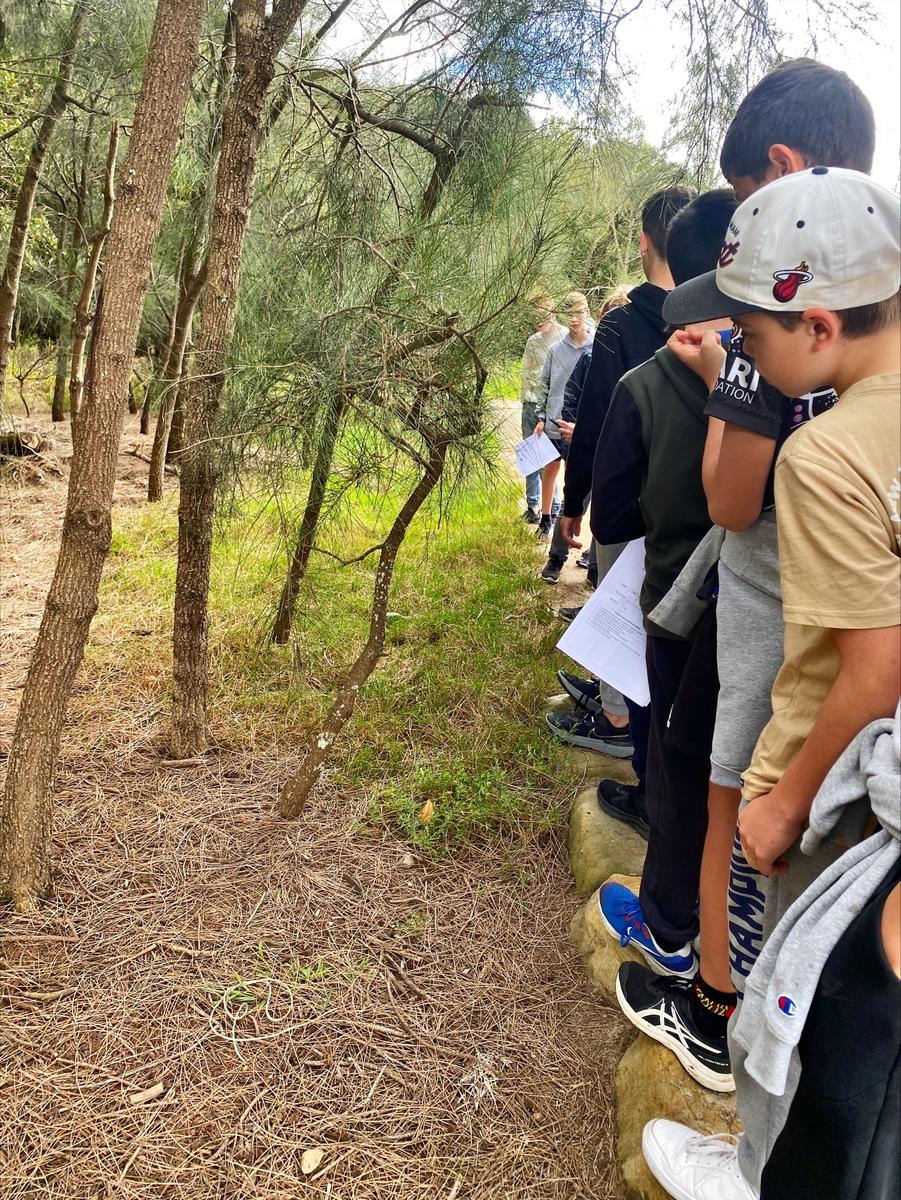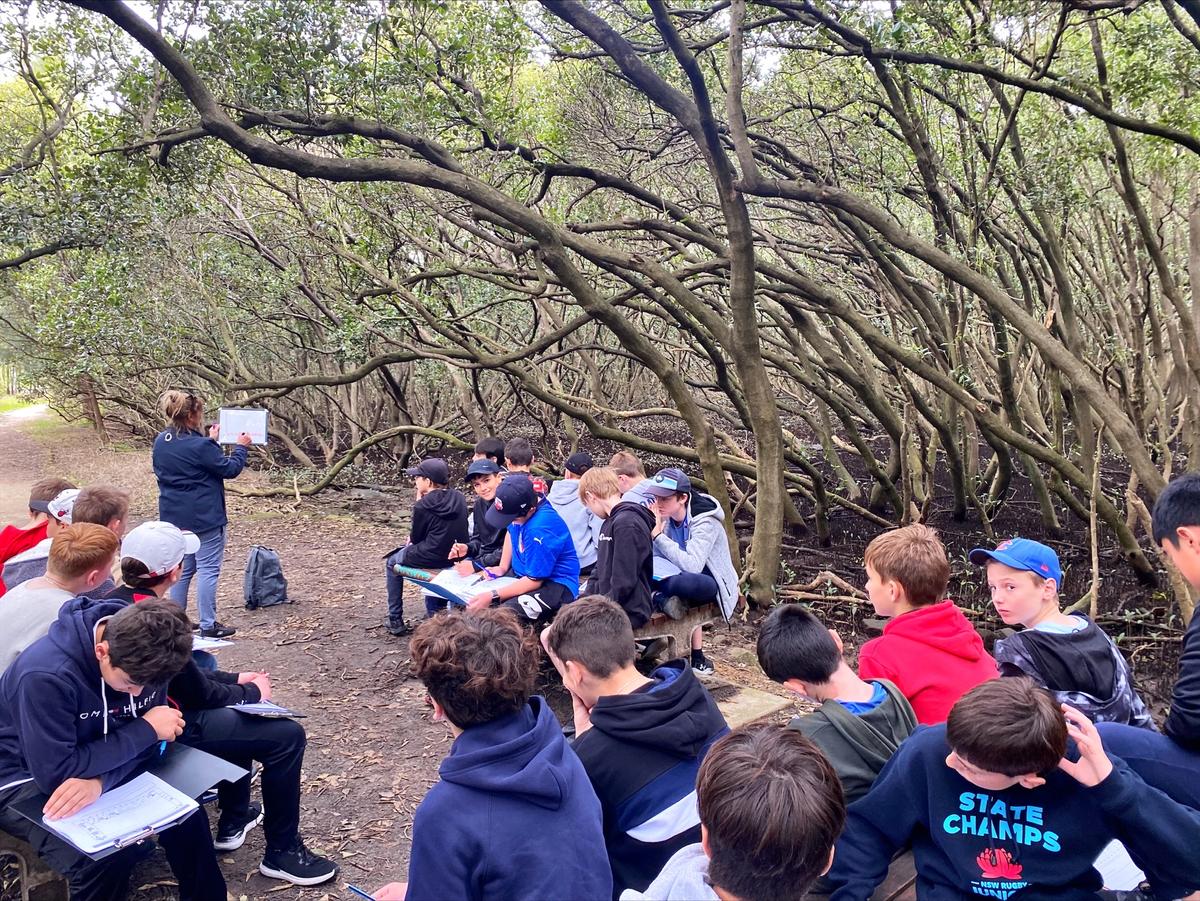Curriculum

With five weeks to go to the commencement of the HSC written examinations, parents/carers and boys of Year 12 are reminded about the following HSC matters:
Year 12 Academic Reports
By the end of this week, Year 12 final academic reports will be issued online via the TASS Parent Lounge.
It is worth noting a few key features of the final report include:
- Co-curricular Involvement to date, as applicable
- Attendance at key College events since the Semester 1 Report such as Founder’s Day and Year 12 Spirituality Day
- Attendance Record from Monday 28 March up to and including Friday 26 August
- The homeroom teacher’s Pastoral Profile which describes the student’s general school and homeroom practices associated with grooming and uniform, co-operation, manner, punctuality, responsibility, initiative and contribution to Mission. These Profile elements are described as Consistently, Usually, Occasionally or Rarely
- A percentage Trial HSC Examination Mark, the Trial HSC Examination Rank and the HSC Course Rank. It is important to note that it is a NESA requirement that schools are not permitted to issue the HSC Course Assessment Mark on reports
- Achievement in one or more Learning Areas or descriptors expressed by one of the following indicators: Excellent, Good, Satisfactory, Elementary or Limited. Each indicator indicates the level of performance achieved by the student, similar to the Common Grade Scale as the Scale is generally well understood
- Achievement in a number of Learning Practices, such as application, conduct and commitment to study indicated as either Consistently, Usually, Occasionally or Rarely.
The issuing of the reports is an important time for parents/carers to constructively assess their sons’ academic progress and make the necessary adjustments, with the view of making determined improvements over the remaining weeks leading to the HSC written examinations.
Preparation for the HSC Written Examinations
The next few weeks are very important as each Year 12 student steps up his study regime in the realisation that in terms of marks, it is only half-time – the game is not over yet. There’s still 50% of the HSC mark to work for.
Although it will also be an eventful time for our boys as they celebrate the end of their schooling, they must not lose focus from the main task ahead – the HSC written examinations which commence Wednesday 12 October with the English Standard and Advanced Paper 1 in the morning and conclude Friday 4 November with the Design and Technology paper in the afternoon session.
Thorough revision of the syllabus points and practise using past papers under self-imposed examination conditions are essential to sharpen preparation for the examinations at this stage.
Over the course of the year, teachers have drawn attention to readily accessible resources on the internet to assist the boys with their study and revision. The following are most useful for Year 12:
- Home | NSW Education Standards – HSC examination rules and procedures, syllabuses, past examination papers and notes from the marking centre, 2022 HSC examination timetable and Students Online
- ARC :: Years 11-12 (including Higher School Certificate) (nesa.nsw.edu.au) – Syllabuses, past examination papers and notes from the marking centre, standards packages and online multiple-choice
- Topic | HSC Study Guide 2022 | The Sydney Morning Herald (smh.com.au) - Recently published, this site provides course summaries and guides and advice on study and examination techniques.
I strongly recommend that all Year 12 students engage the above sites as part of their preparation for the HSC examinations.
HSC Students Online
This NESA website facility provides students with their:
- personal details
- enrolment details
- personalised HSC examination timetable
- personalised Advice Line schedule
- Assessment Rank Order Notice
- HSC results.
It is important that Students Online is accessed and checked. Should parents/carers or their sons have further questions about the Students Online service or concerns about the information therein, please do not hesitate to contact Mr Cutrupi at the College.
During the HSC, Students Online and the NESA website will continue to be an important source of information about the HSC. NESA will also continue to provide assistance for any HSC related matters.
HSC Illness/Misadventure
In the event of illness or misadventure during the HSC examinations, it is imperative that the HSC Presiding Officer, Mrs Saric, is immediately notified. The College, through either Mr Newman or Mr Cutrupi, must also be notified. An appeal form, which covers each affected examination, will be issued. The completed form must be returned to Mr Cutrupi for the Principal’s signature and submission to NESA by no later than Monday 7 November.
More information regarding the illness/misadventure process during the HSC examinations may be found at: Illness and misadventure | NSW Education Standards.
HSC Assessment Rank Order Notices
These may be accessed and printed from home via the Students Online facility on Monday 7 November. Appeals concerning rank order must be submitted to Mr Cutrupi, in writing, by no later than 3:30 PM, Tuesday 8 November.
Release of Higher School Certificate Results
NESA will make the 2022 HSC results available to students via Students Online on Thursday 15 December.
Australian Tertiary Admission Rank (ATAR)
The Universities Admissions Centre issues a different PIN to that of Students Online to enable access to the ATAR, also released on Thursday 15 December. A special barbeque lunch for Year 12 will be held here at the College, commencing 11:00 AM on Thursday 15 December.
Michael Cutrupi
Director of Curriculum
BYOD reminders – use of devices in the classroom
This week, we have been reminding students about responsible and respectful use of their devices in the classroom.
Please support us in ensuring your sons are aware of our expectations regarding use of their devices for learning. The following points have been discussed with teachers and shared with all students across the week:
- Teachers are in charge of the learning in the classroom; they make the educational decisions regarding when a laptop is required for learning. Students are not to determine, ad hoc, when they want to use their device. Our expectation is that devices are a tool for learning, like any other tool. Use of a device is a privilege and has responsibilities – it is not a right.
- Teachers are to be clear when students line up and enter the room regarding resources required for the lesson. If no devices are needed for that lesson, students will be told to leave them in their bags. If needed later in the lesson, teachers will request that boys bring them in but leave devices under their desks until needed.
- If a student opens his laptop automatically, without being asked, the teacher will provide a caution and ask for devices to be put away in bags or under desks. If a student commits a second infraction in the lesson, his laptop will be placed on the teacher’s desk until the end of the lesson and a technology infringement added to TASS.
- If students are using devices and they are navigating to Canvas or another site, the teacher can give the instruction and then have students “spin devices towards me” so they can see when all students are where they need to be.
- If boys are working and a teacher needs their need their attention, the teacher will call out “laptops at 45 degrees please and eyes on me” and all boys should dip the device cover to 45 degrees and provide attention as requested.
- When boys are working on devices, a teacher must be vigilant. They can work from the back of the room so they can see all screens, or even better, stay mobile. They can wander around, check in, converse, have good proximity to the boys.
- No student is to charge his laptop in the classroom. This is a safety precaution, and all teachers need to reinforce this expectation. Not only are cables a trip hazard – but if a cable is not certified as safe (tagged and tested), it is a potential fire hazard as well. Year 12 can charge devices in the Vera Wilson Study Centre using cables provided by the College. Please ensure your son remembers to charge his laptop overnight at home.
Thank you for your support.
Teachers Share Their Expertise
In Practice Perfect, Doug Lemov, Erica Woolway and Katie Yezzi argue that ‘practice makes permanent’ or, to put it another way, the quality of knowledge and performance your students retain is dependent on the quality of practice they put in. In the words of Graham Nuthall, students ‘learn what they do’…Our task is to shape learning so that simple misconceptions and misunderstandings do not become immoveable. (Allison and Tharby, Making Every Lesson Count, 2015, p 125).
As we continue our exploration and consolidation of evidence-based practices linked to the Making Every Lesson Count series, our combined professional learning session last week centred on a panel discussion featuring various teachers sharing their expertise on how they embed the important principle of “practice” in their lessons.
Mr Nicholas Phillipson chaired the panel discussion, starting the session by linking an artist’s mastery practice to that of a teacher’s practice and a student’s learning. The questions for the panel were crafted by Mrs Janine Timillero and Mrs Jessica Burgess. In their questioning, they modelled a range of effective classroom questioning techniques such as Serve and Return, Socratic Probing, Open and Closed Questioning, and Supporting the Struggle. Our panelists Mr Mohammed Tabbara, Ms Maria Capobianco, Mrs Surekha Chander, Mr Adam Leslie and Mr James Shore, provided insights on the difficulty of striking the right balance between sharing and developing content knowledge and refining skills and knowledge through practice. Their responses throughout made it clear that the skills and knowledge of the teacher are key in both knowing their students and what they need to further develop and knowing their content and which aspects are foundational and require additional time to get it right.
Practice does not need to be the writing of a whole response to be valuable. Practice can be short, timed responses, flashcards, planning in response to an unseen question, writing sentences or paragraphs, or repeating a physical skill or practical outcome. Homework is often a valuable form of practice and reinforcement. As teachers, we need to use formative assessment opportunities not only to provide our students with practice, but also to gauge their progress and know where they need to direct additional time to refining skills.
We are looking forward to our remaining professional learning sessions this year – the important role of quality feedback early next term and the celebration of our work in the staff showcase at the end of the year. The willingness of our teachers to share their own journeys and expertise provides rich insights into what is common across our classrooms, despite different ages and subject areas, and how much we have to gain by learning from and with each other.
If challenge, explaining, modeling and questioning are the ingredients for learning, practice is the oven in which it is baked.
(Maxwell, Making Every MFL Lesson Count, 2019)
Practice is the active part of learning. It requires effort, determination, resilience and a whole host of non-cognitive skills.
(Tharby, Making Every English Lesson Count, 2017)
Denise Lombardo
Director of Learning and Innovation
Year 7 Geography Excursion
Recently, the Year 7 Geography cohort participated in an excursion at Sydney Olympic Park. The excursion was based on the students’ current unit of work, exploring the diverse landscapes and landforms across our Earth and their features.
During the trip, students examined the environmental and human processes that form and transform landscapes and landforms in the field, focusing on the mangroves and intertidal wetlands. They also learned about the methods of wetland management and protection implemented by the Sydney Olympic Park Authority, as well as the management strategies implemented by the traditional custodians of the land.
This included the use of geographical tools to conduct studies into the functioning of the wetland ecosystem and monitoring of the ecosystem following the landfilling of the 1960s. The students completed a field work booklet while being guided and informed on geographical skills and information by the park guides.
The guides were impressed by the students’ participation in activities and engagement in discussion of key geographic concepts and skills.
Thanks goes to the teachers who took part in the excursion and to the students who participated excellently in the day’s activities.
Constance Apostolou
HSIE Teacher



